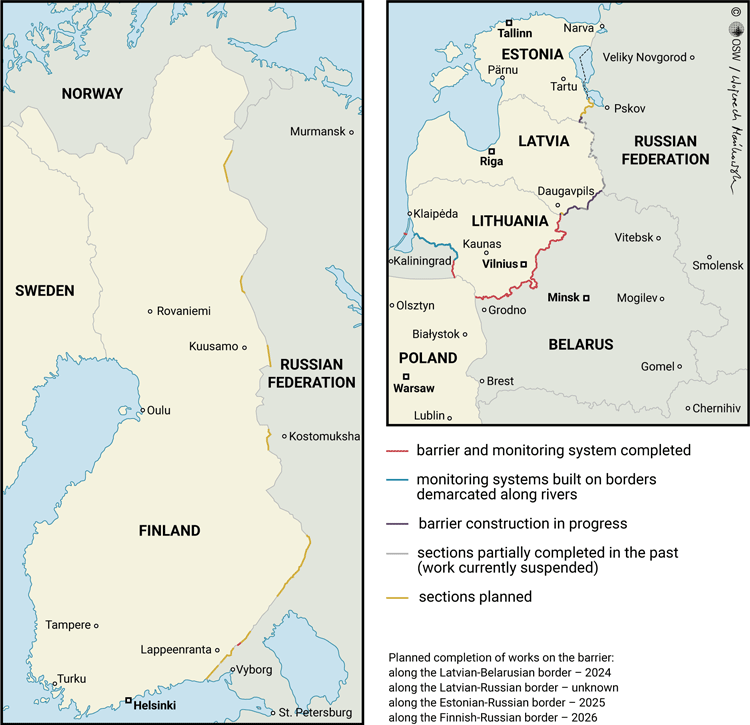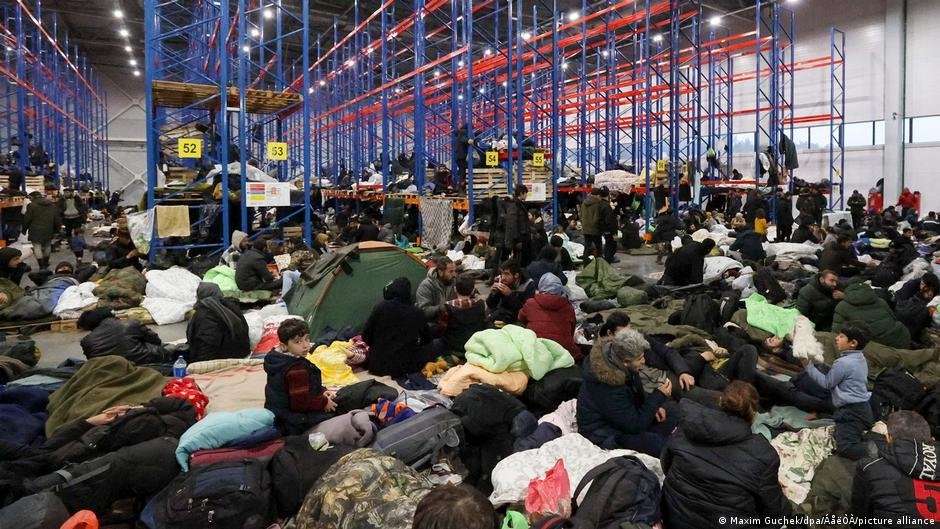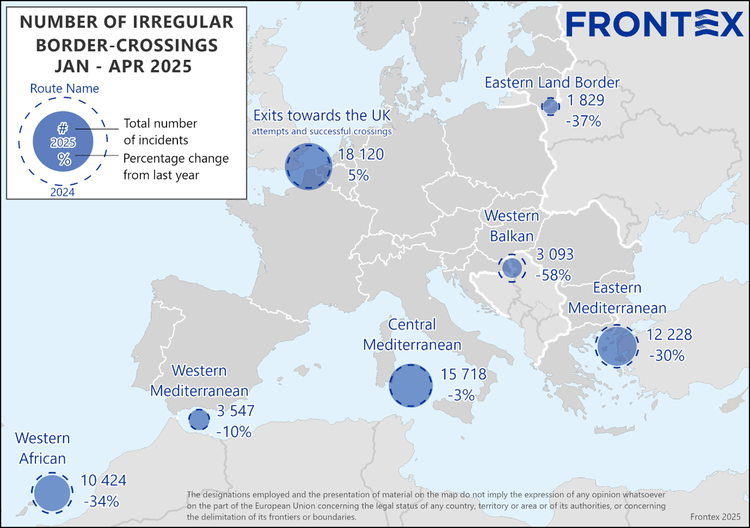The Government of Lithuania filed a case against Belarus at the International Court of Justice. Lithuania accuses Belarus of "organizing and facilitating the large-scale smuggling of migrants into Lithuania," stated a government press release.
Lithuania has brought its first-ever interstate case before the International Court of Justice (ICJ), accusing Belarus of orchestrating irregular migration as part of a broader campaign of political pressure.
"Evidence gathered by the Lithuanian authorities confirms the Belarusian regime's direct involvement in organizing migrant flows," the Lithuanian government said in a statement on May 19.
"The case concerns breaches of obligations under the Protocol against the Smuggling of Migrants by Land, Sea and Air, which aims to prevent and combat the illegal movement of people across borders."
Lithuania’s Minister of Justice, Rimantas Mockus, said that Lithuania "is prepared to demonstrate its legal leadership by asserting its rights under international law through decisive action."
"Lithuania’s reputation must be safeguarded, and the Belarusian regime must be held legally accountable for orchestrating the wave of illegal migration and the resulting human rights violations. Such legal actions not only address the immediate harm but also establish important interpretations of international law that serve the common interest of the global community, deterring Belarus and other states from committing similar violations in the future," explained Mockus in the press release.
Read Also'Where's the humanity?' – the story of one Yemeni migrant's journey to Europe
Lithuania's border
Lithuania shares a border of about 679 kilometers with Belarus. Lithuania also shares a 274-kilometer border with Russia. According to the Center for East European Studies, (a public institution based in Poland that researches on European security as well as what is happening in various eastern regions and countries, including Russia, Eastern and Central Europe, the Caucasus and Central Asia, the Balkans, Germany, the Baltic and Nordic states, China, Turkey and Israel) Lithuania actually began talking about building a border fence in 2014. It began erecting a fence on parts of the border with Russia, and the fence on the Belarus border was meant to be completed by 2020, but wasn't.

However, within a year and a half of the beginning of migrants crossing via Belarus across the eastern borders of the EU, Lithuania had errected "529 kilometers of four-meter-high fencing on the border with Belarus and 356 kilometers of razor wire was laid in parallel; the installation of electronic monitoring systems was completed in the spring of 2023. A roughly 100-kilometer section runs along watercourses where the fence cannot be built. The Lithuanian interior ministry has said that the entire strip bordering Belarus is currently being monitored. The next step in the plans is to lay out patrol roads along this strip," stated a paper published on the Center for Eastern Studies in 2023.
"Lithuania has earmarked 3.6 million euros to reinforce its border with Kaliningrad oblast, including 1.3 million euros for the construction of the fence and the rest for the monitoring system. The costs of the border infrastructure on the Belarusian section are many times higher. The Lithuanian government has earmarked 152 million euros for this purpose," noted the Center for Eastern Studies in 2023.
Read AlsoEurope finds appeal in border fences once again
Lithuania sends a 'clear message'
Lithuania said it wanted to send a "clear message" that "no state can use vulnerable people as political pawns without facing consequences under international law." The Ministry of Justice told Lithuanian National Radio and Television (LRT) that they believed Belarusian state enterprises had increased flights from the Middle East and other regions, issued visas, and arranged accommodation for incoming migrants.

They further alleged that the Belarusian regime then escorted migrants to the Lithuanian border and forced them to cross "illegally, often in dangerous and life-threatening conditions," reported LRT.
The ministry added that despite "repeated requests for cooperation, Belarusian border authorities have refused to engage with Lithuanian agencies to stop illegal crossings," reported LRT.
Read AlsoEU to boost security, restrict asylum right at Russia, Belarus borders
'Hybrid attack'
Part of the case will be seeking an "adequate reparation," to cover the "damages" incurred from this "hybrid attack," stated the government.
In 2021, when migrants started to arrive via Belarus and cross the Lithuania border, Lithuania’s Ministry of Interior issued a press release saying that 4,115 migrants had entered the country in 2021, representing a 55 times increase compared to the numbers of entries in 2020 and 110 times increase compared to the numbers in 2019.

The government said that in the month of July, when most of the migrants began arriving, almost 3,000 people crossed the border. In just one day in July, stated the Lithuanian government, the number of irregular migrants compares to the whole years of 2020 and 2019 taken together.
The majority of migrants that crossed that year came from Iraq (2,797).
Read AlsoLithuania legalizes pushbacks
Numbers declined in the first four months of 2025
Lithuania’s state border guard service told InfoMigrants that since 2021, they have prevented 23,600 migrants from crossing into the country from Belarus. Many of these individuals have attempted to cross the border multiple times, confirmed the border guard.
A spokesperson for the border guard confirmed by email that so far in 2025, "Lithuanian border guards prevented 712 illegal migrants from entering the country from Belarus." In 2024, she said 1,002 individuals were stopped from crossing from Belarus at "unauthorized locations." In 2023, the number of attempts to cross into Lithuania by the State Border Guard Service (SBGS) totaled 2,643 and in 2022, SBGS turned back 11,211 migrants "who attempted to cross illegally from Belarus."
The SBGS spokesperson confirmed that "from August 3, 2021 — when SBGS officers were granted the authority to turn back illegal migrants attempting to cross the border from Belarus at unauthorized points — until December 31, 2021, a total of 8,106 individuals were denied entry into Lithuania."
At the beginning of this year, the European border agency Frontex issued its figures for 2024. Overall, it found that irregular border crossings into the EU dropped sharply in 2024, however, on the so-called eastern borders route, which includes Belarus into Lithuania, there was a "threefold increase in reported crossings."

Between January and December 2024, Frontex recorded 17,001 irregular border crossings along that route, although that was not exclusively into Lithuania. The majority of migrants attempting this route came from Ukraine, Ethiopia and Somalia, noted Frontex.
However, in the first four months of 2025, Frontex noted a 37 percent drop in the number of irregular border crossings at the eastern border with Belarus, recording just 1,829 between January and the end of April 2025.
Read Also'The soldiers wake us up at 6am. They come with dogs': Eric, inside a migrant camp in Lithuania
